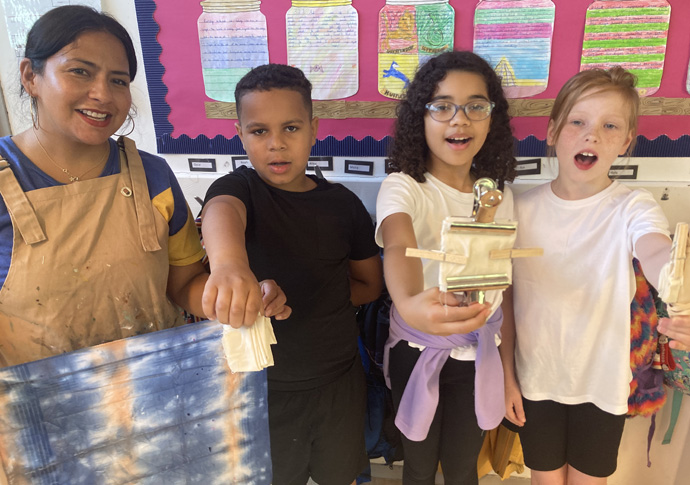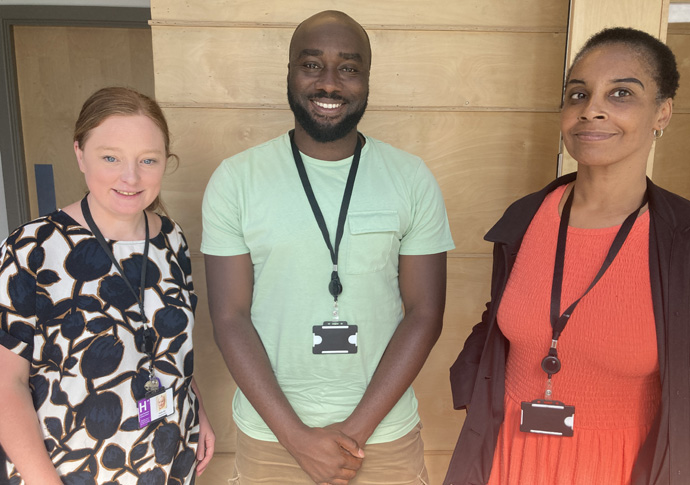Music and the art of success in learning maths and English
As schools face dwindling numbers of pupils, headteacher throws out the rule book
Friday, 28th June 2024 — By Charlotte Chambers

Hugh Myddelton parent Tatiana Hernandez leading a screen-printing class, with Year 5 students Jaylen, Flora and Ruby
STRUGGLING schools take note: the way to win more pupils is to take arts seriously.
As the usual competition between schools for dwindling numbers of pupils commences, one Clerkenwell headteacher has thrown the rule book out to hold an arts week that sees music and art elevated above maths and English.
Head Sarah Gill, who has been at Hugh Myddelton Primary for 15 years, explained that the week was an important way of developing pupils’ confidence and skills – but was also a key way of appealing to parents.
She said that schools saying that they aren’t able to offer a broader arts provision because they’re not full was incorrect and that, in reality, “if you switch it, parents do want to come here because they see the musical and the arts offer all the way through the school”.
Hugh Myddelton is Islington’s most oversubscribed school with waiting lists for its classes in double digits.
“It’s not that they have to wait till they’re seven for this great big offer to open up,” Ms Gill said about what is provided, with music, arts and languages offered throughout the school. Children learn trumpet and violin in reception and then recorder until Year 4 before drums, brass instruments, guitar, and stringed instruments are then introduced – violin and cello – when they’re in Year 4.
“It starts with our early years, it starts with our two year olds,” she said.

Headteacher Sarah Gill with music lead Joelle-Leon Phillips and arts lead Alison Forde
Hugh Myddelton’s music lead Joelle-Leon Phillips said “ultimately” the status of arts in a school came down to desire and not money.
Ms Gill said that by giving children the opportunity to shine in subjects other than maths and English, “you see some real stars coming through” who otherwise may feel unappreciated, although the school did finish in the top 2 per cent of the country for English and maths.
Schools must ensure their core subjects are solid alongside arts provision, she said, adding: “If you come into schools that have done it [prioritised arts] and see the impact it has on the children, and I’m thinking of some children that have challenges for a variety of reasons, you see them in those drumming lessons. I’ve got goosebumps thinking about it because you see a completely different child, and then hopefully that confidence filters back into the English and maths.”
Arts lead Alison Forde agreed, but went further. She said without a range of ways of expressing themselves it is understandable those children who “struggle to fit into the peg” of maths and English “mess about”.
Calling the arts week “essential,” she added: “There’s something about not being your true self or being able to express yourself and to show what you can do, because if you can’t do the English and the maths, and you can’t show what you can actually do, then you might as well mess about.”
Ruby, 9, said she liked arts week because “it is very relaxing and helps me calm down,” while Flora, also 9, said it had given her inspiration to work as an interior designer as an adult.